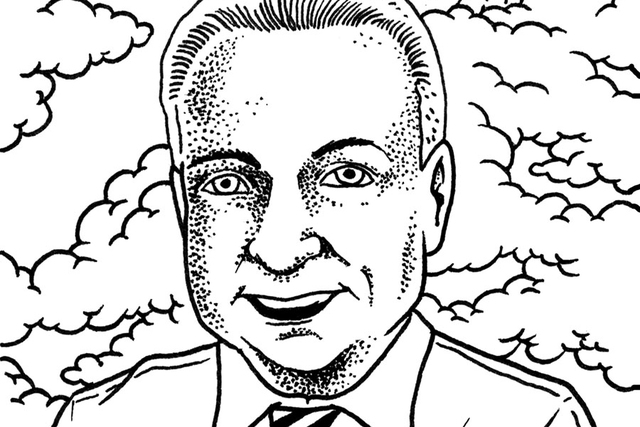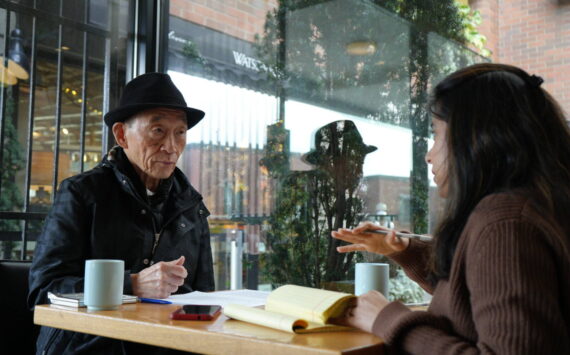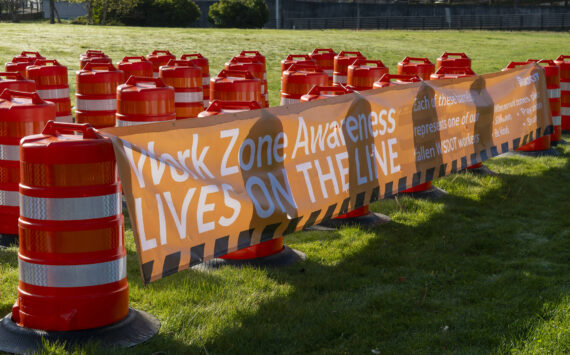On Friday, four veteran members of the KING5 news team will sign off for the last time. Dennis Bounds, Jeff Renner, Jean Enersen, and Linda Byron, all of whom had been at the station for 2o years or longer, were among more than a dozen KING employees to take a voluntary retirement offer at the station, marking a major shift at Seattle’s longtime leading nightly newscast. Renner,
62, has actually had two stints at KING. He was fired in 1989 and then brought back by popular viewer demand in 1990. In addition, he’s a pilot and an oft-called expert witness in trials that involve the weather. With his pending departure from KING approaching, we sat down with Renner to talk weather, Anchorman, and whether a weatherperson can move the needle on climate policy.
You have a science background … That’s right. I came out here way back in 1977. At the same time when I was starting here, they had one person doing weather, a really good meteorologist, and he was it, and they realized if he got sick or wanted to go on vacation, they had to have a news anchor read the weather. So they said, “We’d like you to try that,” and I said, “Well, why?” “Well, because you fly so you know weather.” I said, “It’s one thing to fly in weather, it’s another thing to interpret and forecast it.” They said, “Well, you’ll be fine.” And I said, “Sounds like I’m doing this.” And I found that I really enjoyed it. I went back to the University of Washington and earned a degree in atmospheric sciences and so I am a meteorologist.
Do you think viewers appreciate how much science goes into the weather? You get the Anchorman stereotypes… Right. I think some do and some don’t. It varies very much. You see a lot of variation between markets. In some markets, almost everybody who does weather is a quote-unquote degreed meteorologist, and in some almost none are. Even if you travel around and you watch newscasts in different places, you’re aware of the variation—it was an eye-opener to see that.
I take it Seattle expects good weather forecasters. I think they do. And by and large I have always felt that it never pays to underestimate the knowledge and the desire for information on the part of Seattle-area residents. By and large they ask very insightful questions and they want more information, more detailed forecasts rather than less, and that’s what I’ve really strived to offer up over the years I’ve been doing this.
But the weather’s so bad. Why dwell on it? People are fascinated by weather here. And the old story is you walk down the street in Seattle or Tacoma or Everett or Bellingham and people aren’t wearing team jackets, they look like they’re preparing to go on a sailing race out on the Sound or climb Mount Rainier. And I think because there’s so much interest in getting out, in taking advantage of the recreational opportunities.
Weather forecasting is non-political… It should be…
But is climate change making it difficult not to get embroiled in controversy? It is difficult to not get involved in that issue. In May 2014 the White House invited eight broadcast meteorologists to go back there and get briefed on this report that had been put together by climatologists and scientists in a variety of disciplines on what’s been observed in terms of climate change already and what’s projected, and then have a one-on-one with the president. For the one-on-one we had three or four minutes with the president to ask questions. That was in the Rose Garden. A lot of people still ask, “Did they ask you to submit questions?” And the answer was no. Whatever we wanted to ask was fair game. The interview went very well, but there was a lot of pushback. Even though you are back there doing a story, doing an interview, people automatically assume you were taking a side and there was some pushback, some of which was fine, some of which was very unpleasant and personal. But this last year [former KING 5 news director] Mark Ginther encouraged me to do a series of weather-related documentaries, half-hour specials, and the one we did this last September was on climate change in the Northwest. I was very pleased with that—that was a good legacy piece. Again, it’s a lightning rod for a lot of opposition and I certainly felt that, but I viewed that as part of my professional mission, something I needed to do.
Do you think meteorologists could have a louder voice? Yes. But the public needs to trust us to do it as scientists. Is the data reliable? Is the research reliable? Is it well vetted? You have to be more or less a referee, and hopefully a trustworthy referee, and make sure you’re supplying data that you think is important to get out into public discourse, but you don’t have an agenda pushing it. Some people are going to be convinced you do have an agenda. You can’t do much about that. Some stations, not so much here, but in other parts of the country, actively try to pull their meteorologists away from discussing that all because they are afraid it will cause controversy and will scare away advertising dollars, viewers, whatever. To the credit of everybody here at KING, that was never an issue. They never even asked to see a script.
What thoughts cross your mind when you’re on screen talking about 80 degrees in Seattle in April? A couple of things. It’s important to look at those single events as a potential indicator, but it’s also important to understand that there is a general range of variability. The question is to fit that into a larger pattern. That obviously isn’t my role. I’m not a researcher. But does that cross my mind? Sure it does. As well as “What am I doing inside on a day like this?”
Have you ever felt guilty delivering a forecast? Oh, yeah! Weather is a probabilistic science, it’s not a lab science, and there’s certainly times when the weather doesn’t come true. Yes, I feel bad, and I’ve been caught out myself, and said, OK, you’re paying the price yourself. What I tell people is that I spend probably as much time outside doing different activities, be it cycling, scuba diving, skiing, as most of you do, and if you get caught out in it, I’ve almost certainly gotten caught out in it too.
What about forecasts that are correct, but are just awful weather. You get these calls. You can’t respond to everybody, but I try. You get someone who has a wedding or an anniversary, and you feel terrible for them that the weather looks really crummy. So, yes, from that perspective I also feel bad. But then sometimes you think, “Why would you plan an outdoor wedding at this time of the year?” E
dperson@seattleweekly.com








